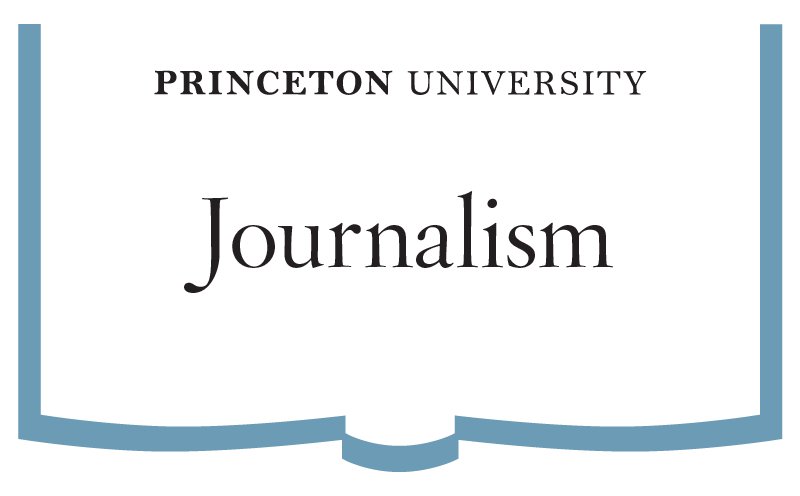In Spring 2021 the Program in Journalism will offer five courses open to students from all majors. For more information about all JRN courses, including cross-lists, visit journalism.princeton.edu/courses/.
Students may contact Margo Bresnen, Journalism Program Manager, at mbresnen@princeton.edu with any questions or to be added to a waitlist.
JRN CORE COURSES
JRN 260 (SA)
THE MEDIA IN AMERICA: WHAT TO READ AND BELIEVE IN THE AGE OF COVID
Joe Stephens, Ferris Professor of Journalism in Residence, director of the Program in Journalism, and veteran investigative projects reporter
This seminar will explore strategies for becoming a confident consumer of the news during the current “infodemic” — the sudden tsunami of conflicting information about the pandemic, social justice protests, and myriad other topics. Students will use time-honored principles of journalism to understand and navigate the rapidly evolving media landscape.
JRN 445 (SA)
INVESTIGATIVE JOURNALISM: DEEPER REPORTING OFF BREAKING NEWS
James Martinez, breaking news investigations editor, The Associated Press
The news cycle is moving faster than ever and the next generation of journalists must be prepared to keep up. This course will reveal the techniques of brainstorming and executing quick-hit investigations off major breaking news, projects that can be completed within days and take advantage of a tuned-in audience before it moves on.
JRN 448/AAS 448 (SA)
THE MEDIA AND SOCIAL ISSUES: REPORTING ON POLICING, RACE AND INEQUALITY
Kimbriell Kelly, Washington bureau chief, The Los Angeles Times
Reporting on issues of policing, race and inequality in society today is critically important, but the challenges that reporters face in doing so are very real. In this seminar, students will examine how journalists cover difficult social issues playing out in the news through four emphases: sourcing, reporting, writing and presentation.
JRN 449/HLS 448/URB 447 (SA)
INTERNATIONAL NEWS: REPORTING ON RISING NATIONALISM IN EUROPE
Joanna Kakissis, contributing international correspondent, National Public Radio
In 2015, the arrival of more than a million asylum-seekers in the European Union triggered a panic over borders and identity on a continent that had spent decades trying to transcend them. This seminar will explore how to cover rising nationalism in Europe, in the context and aftermath of the refugee crisis, with a specific focus on reporting for audio.
JRN 450 (LA)
AUDIO JOURNALISM: THE ART OF NARRATIVE STORYTELLING FOR RADIO AND PODCASTS
Joe Richman, founder and executive producer, Radio Diaries
A good radio story does more than just convey information. In this course, students will find stories and produce them in a way that will capture not just listeners’ attention, but their imagination. They will learn how to combine precise writing, compelling interviews, sound, scene and narrative to create audio documentaries of broadcast caliber.
JRN CROSS-LISTS
POL 477/CHV 477/JRN 477 (EM)
EXPRESSIVE RIGHTS AND WRONGS: SPEECH, OFFENSE, AND COMMEMORATION
Stephen J. Macedo, Laurance S. Rockefeller Professor of Politics and the University Center for Human Values
URB 202/JRN 202/LAO 232 (LA)
DOCUMENTARY FILM AND THE CITY
Purcell Carson, documentary film specialist, Princeton School of Public and International Affairs
VIS 323/CWR 323/ENG 232/JRN 323 (LA)
WRITING NEAR ART/ART NEAR WRITING
Rindon Johnson, lecturer in visual arts, Lewis Center for the Arts












